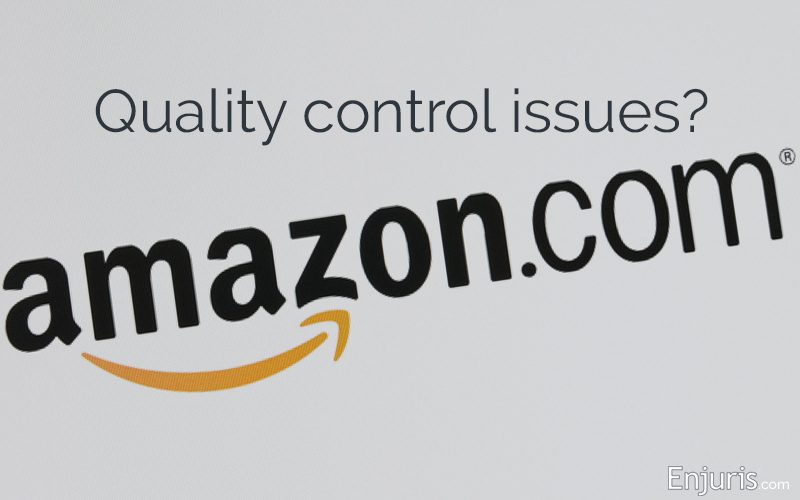
Each year, thousands of defective products enter the marketplace. Unfortunately, some of these products end up harming adults and children.
If you’re injured by a defective product, you may be able to hold the manufacturer of the product liable.
But what about the third-party online marketplace where you bought the defective item?
In most states, third-party online marketplaces, like Amazon and eBay, are considered “service providers” and are immune from product liability lawsuits. However, a recent ruling by the Fourth District Court of Appeal in San Diego may change all of that—at least in California.
What is a defective product?
The law recognizes 3 types of defects that can lead to a product liability claim:
| Type | Definition | Example |
|---|---|---|
| Manufacturing defect | A defectively manufactured product is one that—though property designed—left the manufacturer in a condition other than intended. | A skin cream was contaminated with a dangerous chemical during the manufacturing process. As a result of the accidental contamination, the skin cream caused severe burns when a user applied it to their face. |
| Design defect | A product is defectively designed if it fails to perform as safely as a reasonable person would expect. In other words, the product is unreasonably dangerous. | A vehicle flips 25% of the time when making a sharp turn even at a moderate speed. |
| Failure to warn | Manufacturers have a duty to warn users of the reasonably anticipated dangers inherent in their products. | A canoe manufacturer failed to warn users that the canoe couldn’t safely hold more than 500 pounds. |
Can third-party online marketplaces be held liable in product liability lawsuits?
Product liability laws allow consumers to recover damages from a number of parties when injured by a defective product.
The primary defendant in a product liability lawsuit is typically the manufacturer of the product. However, third-parties, including distributors, sellers, and retailers, can be held liable if they’re an “integral part of the overall producing and marketing enterprise.”
California courts have held that “service providers” are NOT an integral part of the overall producing and marketing enterprise and therefore can’t be held liable in product liability cases.
This begs the question:
How do you distinguish between a service provider and a retailer?
One California court explains the distinction as follows:
“When the purchase of a product is the primary objective or essence of the transaction, liability applies even to those who are mere conduits in distributing the product to the consumer. In contrast, liability is inapplicable to transactions whose primary objective is obtaining services and any product sale is incidental to the provision of the service.”
In other words:
Are you dealing with a third party because they have a product you want or because they have a service you want?
For example, if you’re shopping at a grocery store, you’re doing so because they have a product you want (not a service). On the other hand, if you’re taking your dog to the groomer, it’s because the groomer has a service you want (even if they charge you for the bottle of shampoo they used to wash your dog).
So are third-party online marketplaces like Amazon service providers or retailers?
Angela Bolger v. Amazon.com
The Fourth District Court of Appeal in San Diego recently ruled that Amazon is NOT a “service provider” and therefore can be held liable for defective products sold on its website.
The case heard by the court involved a plaintiff, Angela Bolger, who was hospitalized with third-degree burns after a computer battery she purchased through Amazon exploded in her lap.
The trial court that originally heard the case dismissed the lawsuit after deciding that Amazon was a service provider. The court of appeals reversed this decision, noting that Amazon not only made the battery available online, but stored it in its warehouse, took payment, and shipped it to Bolger.
The judge explained:
“Whatever term we use to describe Amazon’s role, be it retailer, distributor, or merely facilitator, it was pivotal in bringing the product here to the consumer.”
What about other states?
Amazon has faced a number of similar lawsuits in other states. In most of these states, courts have concluded that Amazon is a service provider and therefore immune from most product liability laws.
However, a few courts have ruled against Amazon.
In one of these cases, a Texas toddler swallowed a battery from a remote control device. In another, a woman in Pennsylvania was partially blinded by a dog leash.
How courts begin to treat Amazon will have implications, not just for the retail behemoth but for other online marketplaces.

Jor says
In neveda can amazon be held responible for FAULTHY third party goods sold on there website. Can o sued them in neveda do I have a CASE YES or NO